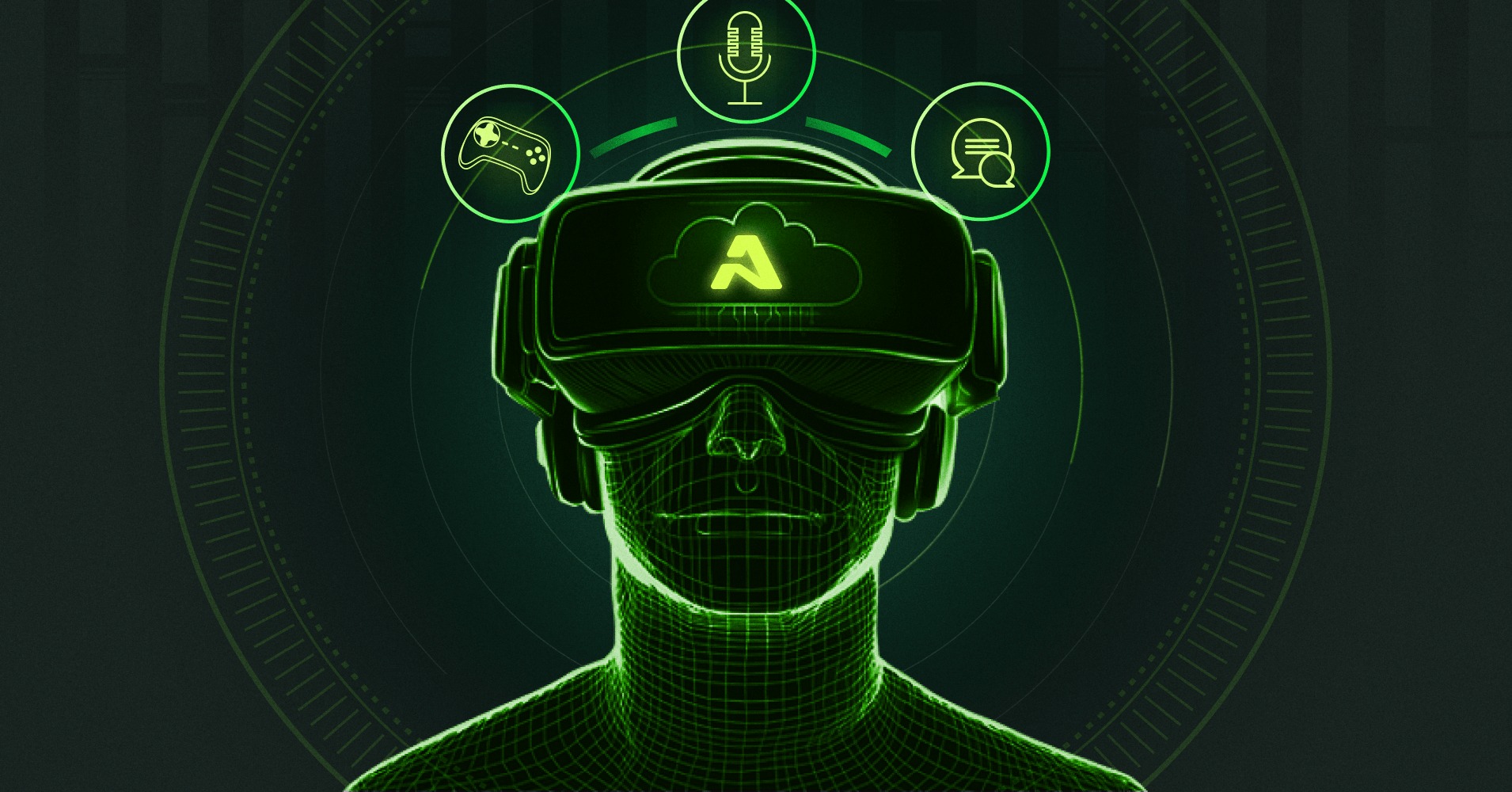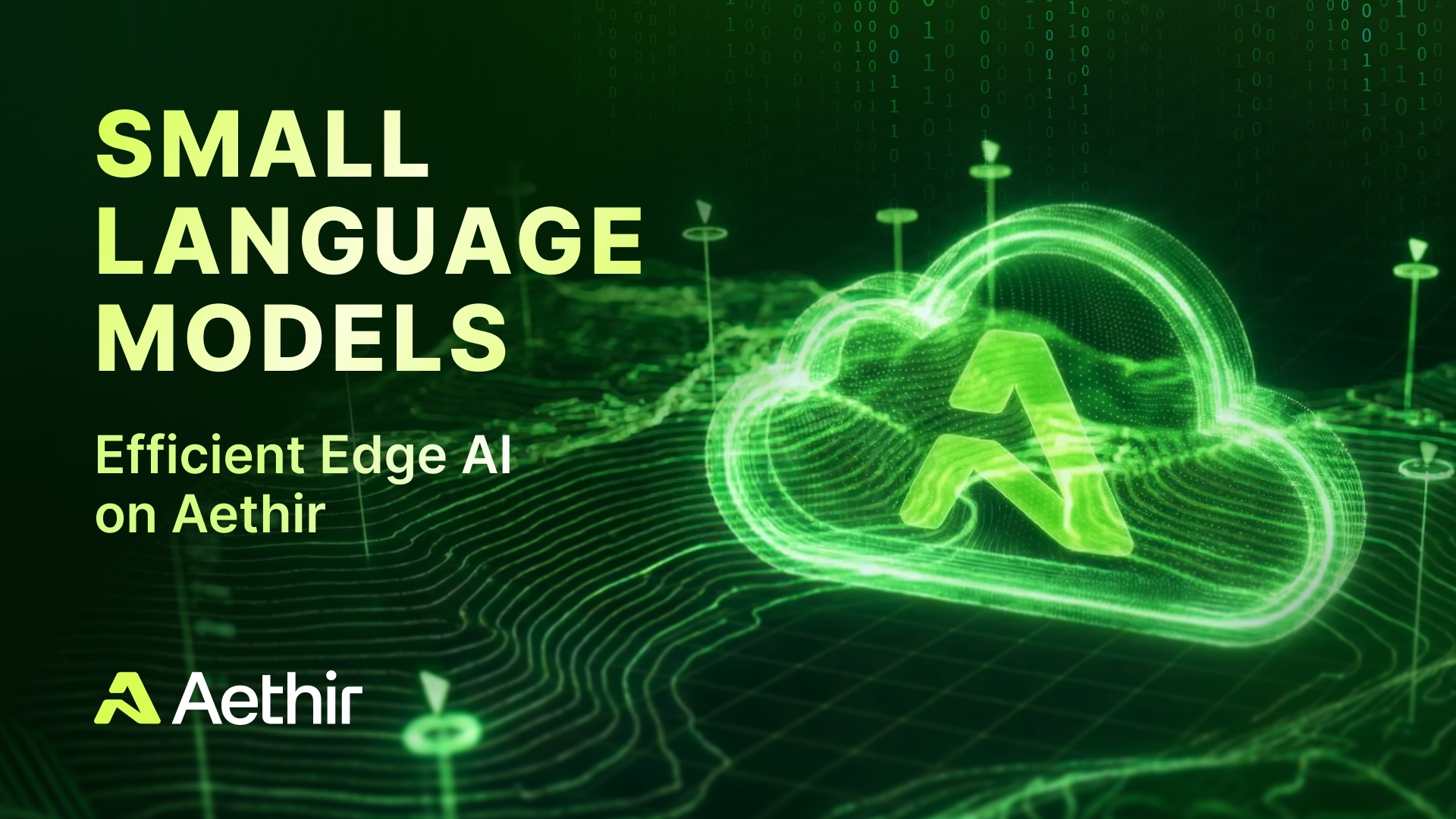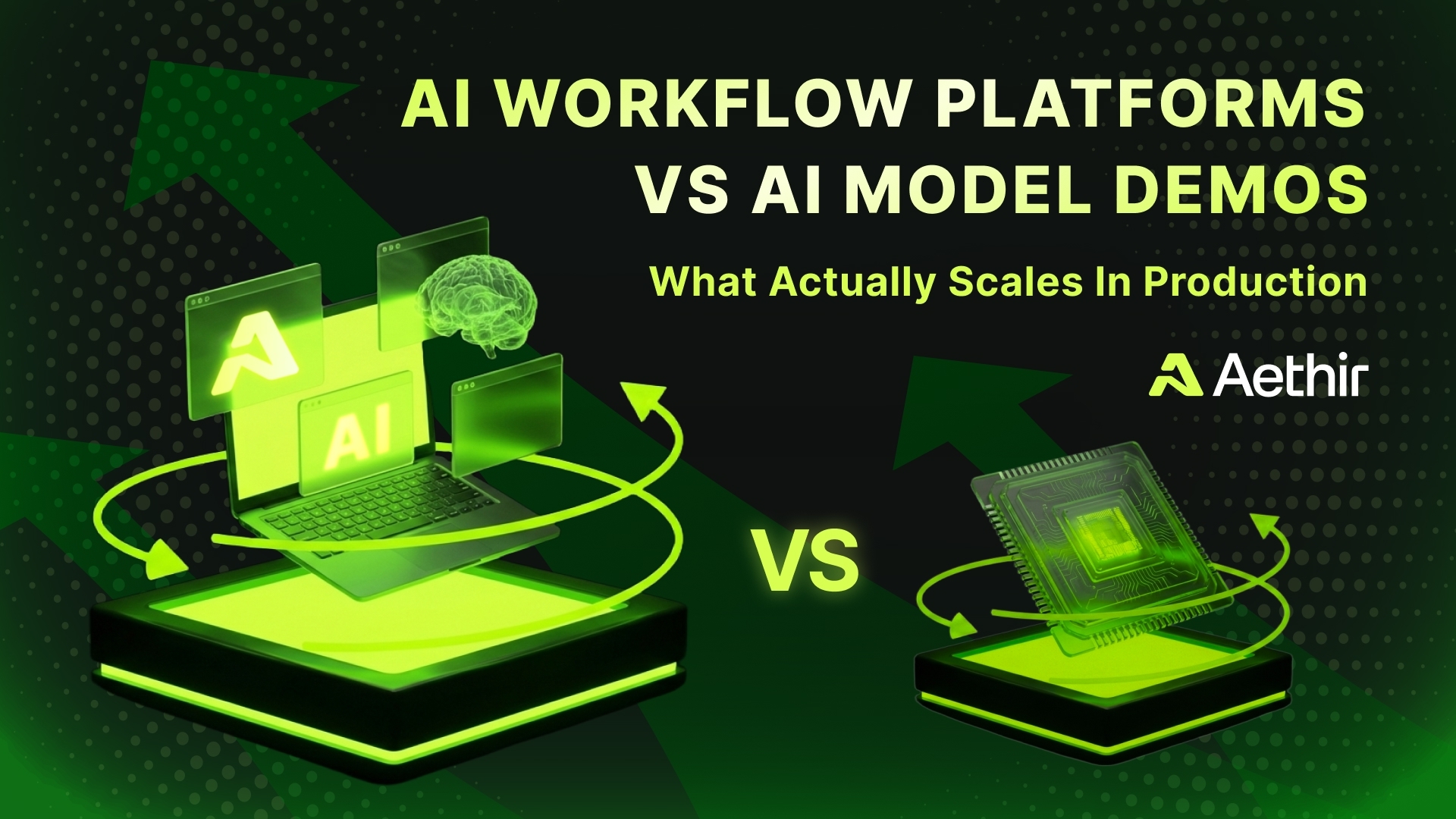- Инструменты локализации игр с ИИ меняют то, как игровые студии адаптируют свои проекты под конкретные мировые рынки.
- Переход к локализации игр на основе ИИ требует надежной, безопасной и экономически эффективной поддержки вычислений в GPU-облаке.
- Децентрализованное GPU-облако Aethir располагает ресурсами и экспертизой, позволяющими масштабно и эффективно обрабатывать задачи по локализации игр с ИИ.
Глобальный рынок игр отличается крайне высокой динамикой и жесткой конкуренцией, требуя первоклассной локализации с ИИ для всех амбициозных игровых релизов. Невозможно выпустить AAA-игру без локализованных версий для определённых рынков. Игроки ждут захватывающего игрового процесса на родном языке, что требует огромных ресурсов. От кинематографичных RPG до динамичных многопользовательских проектов — геймеры ожидают бесшовного опыта на родном языке, который будет культурно и эмоционально близок. Издатели, такие как Ubisoft, Riot Games и Tencent, понимают, что для обеспечения такой аутентичности недостаточно базового перевода.
Именно поэтому ведущие провайдеры локализации, такие как Lionbridge, Altagram и TransPerfect Gaming, обращаются к инструментам локализации игр с ИИ. Эпоха ИИ принесла беспрецедентную автоматизацию и возможности повышения эффективности процессов локализации. Крупные языковые модели (LLM), нейросетевые системы преобразования текста в речь (TTS), движки клонирования голоса и системы перевода в реальном времени обогащают конвейеры разработки игр, предоставляя студиям передовые возможности локализации с ИИ. Используя эти инструменты, студии могут локализовать облачный игровой контент с ранее недостижимой скоростью.
Однако интеграция функций ИИ в процессы локализации игр требует огромных объёмов надежных, масштабируемых и экономичных GPU-вычислений. Централизованные провайдеры GPU-облаков испытывают трудности в обеспечении универсальной вычислительной поддержки, необходимой игровым студиям. Модель децентрализованного GPU-облака Aethir предлагает более гибкий и клиентоориентированный формат GPU-as-a-service. Наша DePIN-инфраструктура легко поддерживает корпоративные задачи по локализации игр с ИИ, включая обучение, дообучение и запуск ИИ-моделей.
GPU-вызов в современных процессах локализации игр с ИИ
Инструменты ИИ крайне зависимы от вычислительной мощности GPU. Инференс ИИ, разработка LLM и обучение ИИ-агентов — лишь часть ресурсоёмких задач, используемых в конвейерах локализации игр на основе ИИ, которые требуют масштабируемых вычислительных мощностей для стабильной работы.
Рассмотрим ключевые задачи локализации игр с ИИ, которым необходима надежная поддержка GPU-облака.
Контекстная донастройка LLM
Игры могут содержать огромное количество текстового и аудиоконтента — от лора и сленга до сложных диалогов, особенно при взаимодействии с ключевыми NPC. Точный перевод диалогов требует понимания логики построения игрового мира, тональных переходов и культурных отсылок. С помощью инструментов локализации игр с ИИ студии могут донастраивать языковые модели на основе игровых сценариев. Однако для успешной интеграции таких возможностей необходимы значительные вычислительные ресурсы.
Клонирование голоса и инференс TTS
Современные игроки ожидают высококачественного озвучивания в AAA-проектах. Это требует применения передовых ИИ-механизмов дубляжа. Сегодня дубляж включает нейросетевые голосовые модели, способные генерировать несколько персонажей с уникальными голосовыми характеристиками. Каждая реплика в десятках языков может создаваться с использованием ресурсоёмкого голосового синтеза, требующего надежного и низколатентного доступа к GPU. Для централизованных облаков обеспечение необходимой сверхнизкой задержки может быть затруднено, особенно в масштабных многопользовательских играх с тысячами одновременных игроков.
Живой перевод в многопользовательских играх
Соревновательные многопользовательские игры — быстро растущая ниша игровой индустрии, отличающаяся массовой, глобально распределённой аудиторией. Многие популярные AAA-проекты включают голосовой чат и текстовую коммуникацию для игроков. Однако реальный вызов — это перевод в реальном времени при одновременной работе тысяч игровых сессий. Для международных команд в киберспортивных турнирах это критично: даже секунда задержки может разрушить погружение и нарушить ключевое взаимодействие игроков.
Все эти функции чрезвычайно ресурсоёмки и требуют мгновенной GPU-поддержки, которая позволит эффективно использовать инструменты локализации с ИИ для тысяч игроков одновременно. Централизованные облачные сервисы имеют ряд ограничений, делающих их непригодными для массовых задач по локализации игр с ИИ, включая высокую стоимость, узкие места в пропускной способности, лимиты выделения GPU и региональные задержки.
Почему децентрализованные GPU-вычисления меняют правила игры в локализации
Децентрализованная сеть GPU-облака Aethir предлагает свежую, высокоэффективную и доступную альтернативу вычислений для передовых инструментов локализации игр с ИИ. Централизованные провайдеры концентрируют свои вычислительные ресурсы в гигантских дата-центрах, что сопровождается высокими затратами на обслуживание и ограниченной масштабируемостью в реальном времени. Они могут эффективно обслуживать клиентов, находящихся близко к дата-центрам, но испытывают трудности с обеспечением низкой задержки для тех, кто находится далеко от региональных центров.
Aethir использует распределённую сетевую архитектуру, опираясь на глобальную сеть облачных хостов, предоставляющую более 430 000 высокопроизводительных GPU-контейнеров для самых ресурсоёмких задач ИИ и игр. Наша GPU-сеть охватывает 94 страны, и количество контейнеров постоянно растёт. В нашем распоряжении — тысячи топовых NVIDIA H200 и GB200 для задач ИИ-инференса, что позволяет студиям использовать инструменты локализации игр с ИИ нового уровня.
Периферийные вычисления для ультранизкой задержки
GPU Aethir распределены по всей сети, а не только в региональных столицах. Это позволяет нам достигать пользователей на периферии сети, что особенно важно для растущего сектора игр, который привлекает миллионы облачных геймеров в регионах с недостаточным уровнем обслуживания. Каждый пользователь обслуживается физически ближайшим доступным GPU-контейнером в нашей сети, чтобы максимизировать эффективность сервиса и минимизировать задержку, обеспечивая потоковую передачу локализированного игрового контента на оптимальной скорости.
Масштабируемость в реальном времени для голосовых и AI LLM-нагрузок
Используя децентрализованную сеть облачных вычислений на GPU от Aethir, игровые студии могут задействовать масштабные функции AI-локализации игр с беспрецедентными возможностями AI-перевода. Перевод более тысячи строк текста на несколько языков одновременно для тысяч одновременных игроков с помощью AI возможен благодаря вычислительным ресурсам GPU Aethir. Aethir может оперативно наращивать мощности GPU по запросу, так как мы просто выделяем клиентам дополнительные ресурсы из нашей децентрализованной сети облачных хостов.
Экономичные вычисления на GPU
В отличие от централизованных поставщиков облачных GPU-вычислений, Aethir не использует механизмы привязки к вендору и контрактные ограничения. Наши клиенты платят только за фактически использованные ресурсы. Наши облачные хосты независимы от традиционных гиперскейлеров-монополистов, что позволяет нам значительно снижать себестоимость за GPU-час. Мы предлагаем непревзойденные цены на GPU-вычисления по сравнению с централизованными облачными провайдерами, что особенно выгодно для небольших студий, которые хотят использовать премиальные инструменты AI-локализации игр при ограниченных бюджетах.
Открывая новые горизонты AI-локализации игр с децентрализованным GPU-облаком Aethir
Представьте стандартную AAA-игру с меньшим количеством голосового контента, ориентированную на экшен, с примерно 15 000 голосовых реплик, шестью главными персонажами, 12 локальными языками, а также режимами живого мультиплеера PvE и PvP. Для сравнения: голосонасыщенные игры вроде The Elder Scrolls V: Skyrim или Fallout 4 имеют соответственно 60 000 и 111 000 реплик.
Чтобы успешно локализовать весь голосовой контент, игра должна сгенерировать выразительное озвучивание для каждого персонажа на каждом языке. Также необходимо адаптировать контекстно-зависимые диалоги, такие как идиомы и изменения интонации. Более того, игра должна обеспечивать перевод голосового чата в реальном времени во время рейдов в подземельях и на PvP-аренах.
Озвучка стандартных внутриигровых реплик может занимать недели ручной работы актеров или очередных вычислений GPU, тогда как централизованные облака ограничивают рабочие процессы синтеза голоса выделением GPU. Кроме того, движки перевода в реальном времени могут сталкиваться с критическими задержками, если вычислительные ресурсы расположены слишком далеко от игроков.
Aethir эффективно решает все эти задачи благодаря мощной, децентрализованной облачной инфраструктуре на GPU, специально созданной для улучшения игровых рабочих процессов с AI-функционалом. Наша децентрализованная облачная платформа позволяет игровым студиям дообучать AI-модели голоса и развёртывать их в различных регионах мира в соответствии с потребностями клиентов.
Технологии облака Aethir дают студиям возможность одновременно запускать TTS и клонирование голосов, значительно сокращая сроки выполнения AI-локализаций игр. AI-озвучка использует движки перевода в реальном времени, развёрнутые регионально, чтобы достичь ультранизкой задержки, что позволяет студиям предоставлять пользователям по всему миру премиальный локализованный игровой опыт. Модель облачных GPU-вычислений Aethir для AI-локализации игр сокращает время озвучки и перевода за счёт распределённого вывода на базе GPU, легко поддерживая инструменты AI-локализации.
Что дальше: Aethir как основа AI-локализации игр для глобального игрового будущего
Игровая индустрия переходит к режиму реального времени и AI-подходам, с приоритетом на голосовое взаимодействие, что требует надёжной и экономичной облачной инфраструктуры на GPU для обеспечения захватывающих, локализованных игровых сессий по всему миру. Локализация теперь включает не только перевод. Это создание культурно значимого, эмоционально вовлекающего опыта в масштабе для тысяч игроков одновременно. Низкая задержка, локальная обработка данных и моментальная потоковая передача — ключевые элементы поддержки новых стандартов локализации игр. Индустрия игр уже использует AI-решения для улучшения локализации.
Низкозадержанное облако GPU от Aethir для игр может эффективно поддерживать AI-клонирование голосов для AAA-игр и перевод голоса в реальном времени для многопользовательских игр. Мы предлагаем экономичное облако GPU для TTS-озвучки, а также доступную услугу GPU-as-a-Service для локализации инди-игр.
По мере того как AI продолжает совершенствовать процессы перевода, озвучки и дубляжа, именно инфраструктура, стоящая за этими моделями, определит, смогут ли студии соответствовать пользовательскому спросу. Aethir предлагает единственную децентрализованную GPU-инфраструктуру, оптимизированную для таких AI-ориентированных рабочих процессов. Студии, которые внедрят модель вычислений Aethir уже сейчас, получат преимущество в предоставлении высококачественной локализации на глобальных игровых рынках будущего.
Узнайте больше о децентрализованной облачной инфраструктуре GPU от Aethir, которая может поддерживать инструменты AI-локализации игр, здесь.
Для получения дополнительных подробностей и образовательных материалов о GPU-облаке Aethir для игр и AI-компаний ознакомьтесь с нашим официальным блогом.
FAQ
Как Aethir снижает задержку при локализации?
Aethir снижает задержку AI-локализации игр, используя глобально распределённую сеть GPU, принадлежащих сообществу. Все клиенты обслуживаются физически ближайшими доступными GPU-контейнерами, что сокращает задержку за счёт уменьшения расстояния между GPU и клиентами.
Какая GPU-мощность нужна для озвучки в реальном времени?
Для высоконагруженных задач AI-локализации игр требуются премиальные GPU, например, как минимум NVIDIA RTX 4090. Однако для крупномасштабных задач локализации студиям может потребоваться сотни или тысячи активных GPU, что значительно повышает требования к качеству и производительности оборудования.
Могут ли небольшие студии позволить себе локализацию на базе AI?
Маленькие студии, особенно инди-разработчики Web3-игр, едва ли могут позволить себе передовую AI-инфраструктуру для высокопроизводительной AI-локализации игр. К счастью, децентрализованное облако GPU Aethir предлагает доступную и экономичную альтернативу централизованным GPU-облакам, что делает его идеальным выбором для небольших студий с ограниченными ресурсами.



.jpg)


_Blog_1910x1000_V3.jpg)